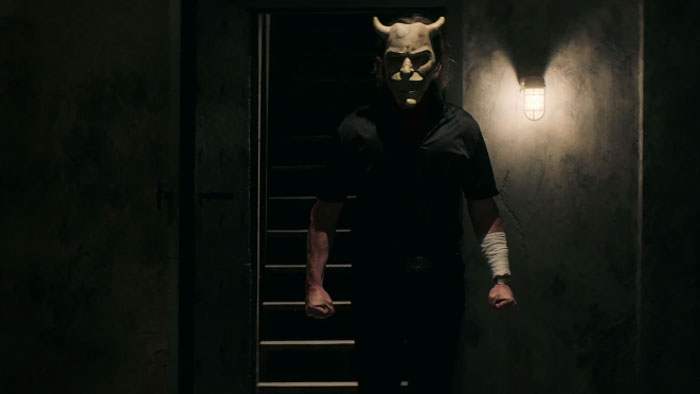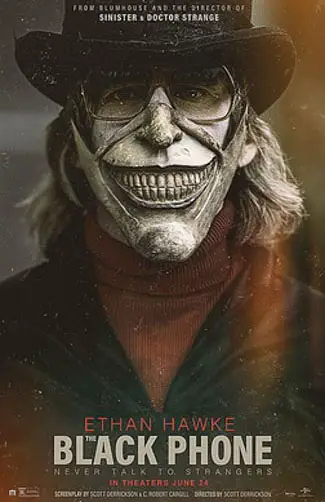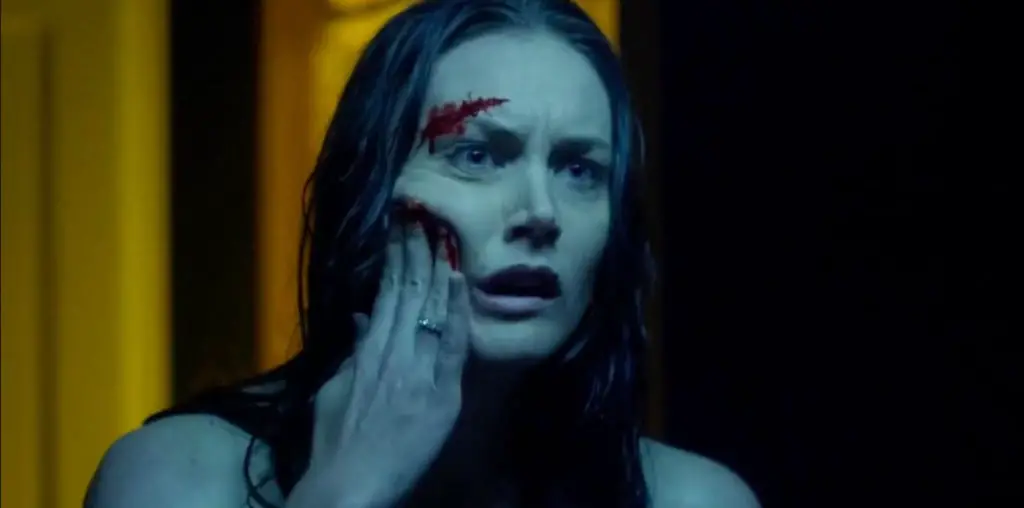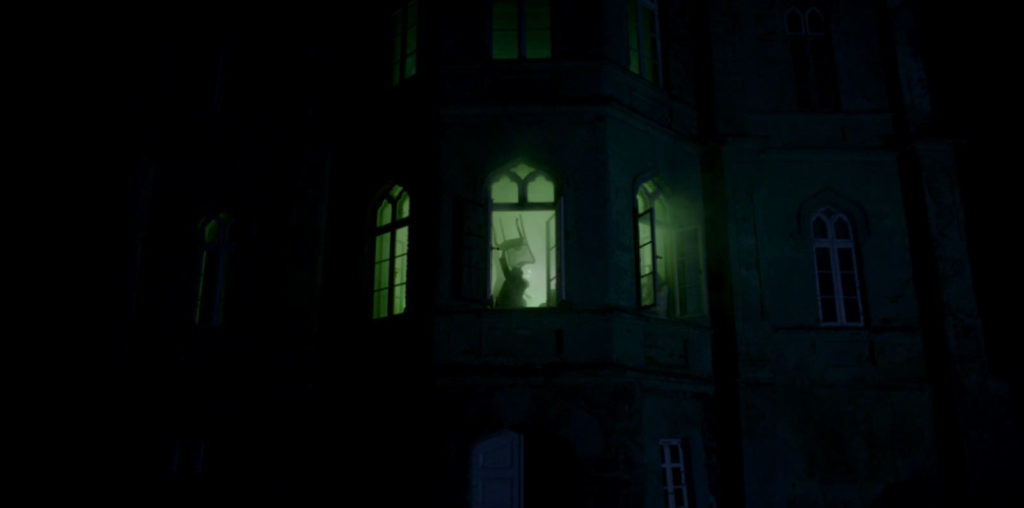
Directed by horror maestro Scott Derrickson, who wrote the film alongside the brilliant C. Robert Cargill, The Black Phone is set in 1978 North Denver. After a very close little league baseball game, popular batter Bruce (Tristan Pravong) is riding his bike home when a black van pulls out in front of him. Fade out to the opening credits.
After the utterly jarring credit sequence, which does not fit the tone of the prologue or most of the rest of the film, the story picks up sometime later (the film only hints at how much time has elapsed, causing some confusion). Finney (Mason Thames) is a smart kid who loves outer space though he’s unable to stand up for himself. His sister, Gwen (Madeleine McGraw), is spunky and has no problem getting into scrapes when the situation calls for it. Sadly, their home life is rough, as their father, Terrence (Jeremy Davies), is perpetually drunk and abusive.

“…the previous victims’ spirits use [the black phone] to call Finney and help him escape.”
Surprisingly, in the best possible way, The Black Phone takes its sweet time getting to the main plot. The first thirty minutes are about Finney and Gwen’s lives and how they navigate the precarious situations the universe throws their way. As such, once the narrative proper gets underway, the filmmakers have ensured that everyone watching care for and roots for the two leads. There are excellent and heartbreaking moments here, from Finney telling Gwen that Robin is his friend, not was, to Terrence beating Gwen because of her dreams. Derrickson and Cargill wisely know that horror stems from viewers feeling anxiety over the dangerous situations characters are put into and get the most sympathy possible by crafting the first third as an intense family drama.
But a short time after Finney’s friend Robin (Miguel Cazarez Mora) is abducted, The Grabber (Ethan Hawke) grabs Finney. This leads to another issue: how long exactly does The Grabber wait between kidnappings? It’s remarkably unclear, as it seems arbitrary. Bruce was taken in June, and now school is in, so that’s a few months before Robin goes missing. But it seems there’s maybe a week from his abduction to when Finney’s grab. Why is he so inconsistent with his timing?
Late in the film, there’s a reason that sort of explains it (having to do with playing a game), but it’s not enough to work entirely. Please note that I’ve seen the first 2/3s of the film twice for reasons too annoying to get into. But the timeline remains off even when aware of certain parts of the story. These odd time skips prevent the film from achieving masterpiece status, though individual scenes reach it.

"…one of the best horror films in a very long time."



[…] Source link […]